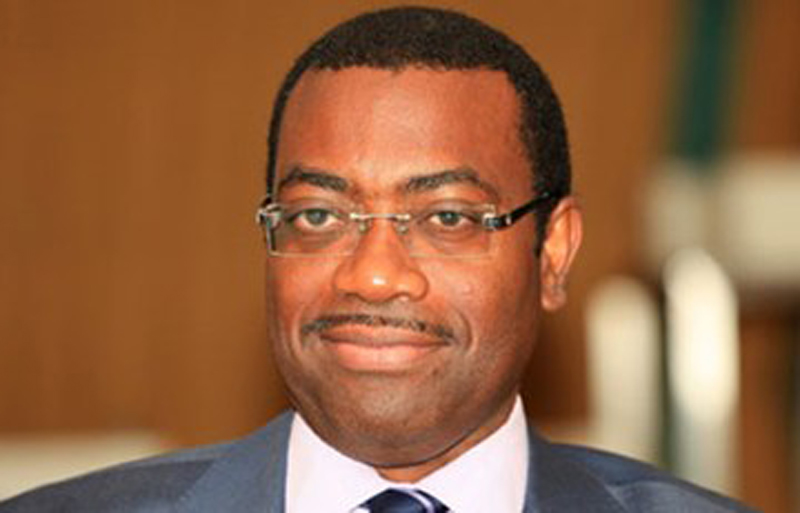
Nigeria’s rising debt stock and the over 50 per cent of its revenue used to service it annually do not bode well for our overall economic development. This has not gone unnoticed by the African Development Bank and other international institutions. A recent statement from the bank questioned its sustainability in its 2019 Economic Outlook for countries in the West African sub-region.
Its total public debt, as of December 2018, was $79.43 billion (N24.38 trillion), out of which $25.27 billion was the external component, according to the Debt Management Office. The bank, which has Nigeria’s Akinwumi Adesina as its president, is not the only one alarmed. The Central Bank of Nigeria, at the end of its January Monetary Policy Committee meeting, had warned that the country risked going back to its vomit – the pre-2005 Paris Club debt level – if the current borrowing binge continued. Multilateral institutions such as the World Bank and the International Monetary Fund had earlier expressed similar concerns.
The danger comes out in bold relief with the Federal Government’s use of N2.21 trillion to service domestic debts in the first nine months of 2018, more than the N2.01 trillion provided in the budget for total public debt servicing for the year. Equally troubling is the gradual swinging of the loans toward non-concessional terms, an inimical fiscal policy, which started rising in 2010. The AfDB said, “The increase has heightened the fiscal burden in an already fiscally and growth-constrained environment. This raises important concerns regarding the sustainability of external debt.”
Nigeria’s public officials quite often rationalise government’s penchant for these debts based on the debt-to-GDP ratio of 15.2 per cent, compared to other debtor countries across the world. This logic is deceptive and nonsensical. The real benchmark, as some experts have rightly argued, should be the debt-to-revenue ratio. With the collapse of the productive sectors, Nigeria continues to be dependent largely on oil revenues despite the price volatility in the global market.
The toxicity in an oil-dependent economy is laid bare in the Organisation of Petroleum Exporting Countries 2019 Annual Statistical Bulletin, which revealed Nigeria’s sharp revenue decline beginning from 2014, when the value of our oil exports was $75.19 billion; $41.16 billion in 2015; $27.29 billion in 2016; $37.98 billion in 2017 and $54.51 billion in 2018. A contrast of the 2018 oil earnings with the $382.24 million non-oil revenue as of October 2018, according to a CBN report, explains why the authorities should be more cautious.
However, some other African countries are as obsessed as Nigeria with foreign credits, with Cape Verde, whose external debt-to-GDP ratio stands at an estimated 103 per cent in 2018, being the worst offender. Senegal, Niger and Sierra Leone are next in line, while Benin, Guinea-Bissau and Togo also have ratios below 25 per cent. ECOWAS countries spend an average of 17 per cent of their revenues on servicing external debts.
The Buhari government should halt this dangerous drift, with its inclination to continue borrowing, especially from China, to complete railway projects and other infrastructure that ought to have been mostly executed with private funds through foreign direct investment and privatisation. The DMO has confirmed that the government will borrow $2.7 billion from external sources to fund the 2019 budget. The future of the country should not be mortgaged further. This was how Nigeria slowly, but surely, fell into the foreign debt-trap with an overhang of $30 billion in 2005. But the country exited it following a debt relief of $18 billion from the Paris Club of creditors, which paved the way for it to pay $12 billion in 2006, climaxing the debt forgiveness under Olusegun Obasanjo’s Presidency.
The opinion of World Bank Chief Economist for Africa Region, Albert Zeufack, who noted in 2017 that Nigeria’s debt-to-revenue ratio was high, should draw Buhari’s attention. Therefore, the intention of officials of his administration in the twilight of the first term, to raise the foreign component to 40 per cent of its total debt stock by the end of 2019, portends danger. The attraction of cheaper lending rates, in some of the credits has not helped our cause, given how some of them were abused in the past, thus defeating the purpose for which they were taken.
While borrowing is not completely out of place, to do so to fund recurrent expenditures, pay salaries or build infrastructure that cannot repay the loans, is simply bad economics. Under Buhari, Nigeria has collected $3.1 billion loan for railway construction. In 2010, a Chinese firm, ZTE Communications, was awarded a $470 million contract to provide Closed Circuit Television cameras for Abuja and Lagos. While the loan will be paid back, it is difficult to fathom where the facilities are in the two cities.
Though, the Buhari administration has justified its borrowings with his predecessor’s failure to save when oil prices averaged $100 per barrel for almost five years, options exist in looking inwards, tightening revenue leakages, and bringing more people into the tax net. Nigeria is one of the countries where some billionaires completely evade tax payment. An insight: 6,772 billionaires with between N1 billion and N5 billion in their bank accounts evaded tax in 2016; yet, they are still walking free.
Some of the oil companies reportedly had undeclared or stolen crude worth $17 billion between 2011 and 2014, which, the immediate former Attorney-General of the Federation and Minister of Justice, Abubakar Malami, stated at the House of Representatives in 2017. The Buhari government’s failure to recover this huge fund explains why foreign loans remain attractive to it. This is where the state should exert its authority; otherwise, worse sleaze lies ahead. A country that spends more than half of its earnings to service debts and, as a result, less on capital expenditure, indulges in shadow-boxing in terms of development.
END

Be the first to comment